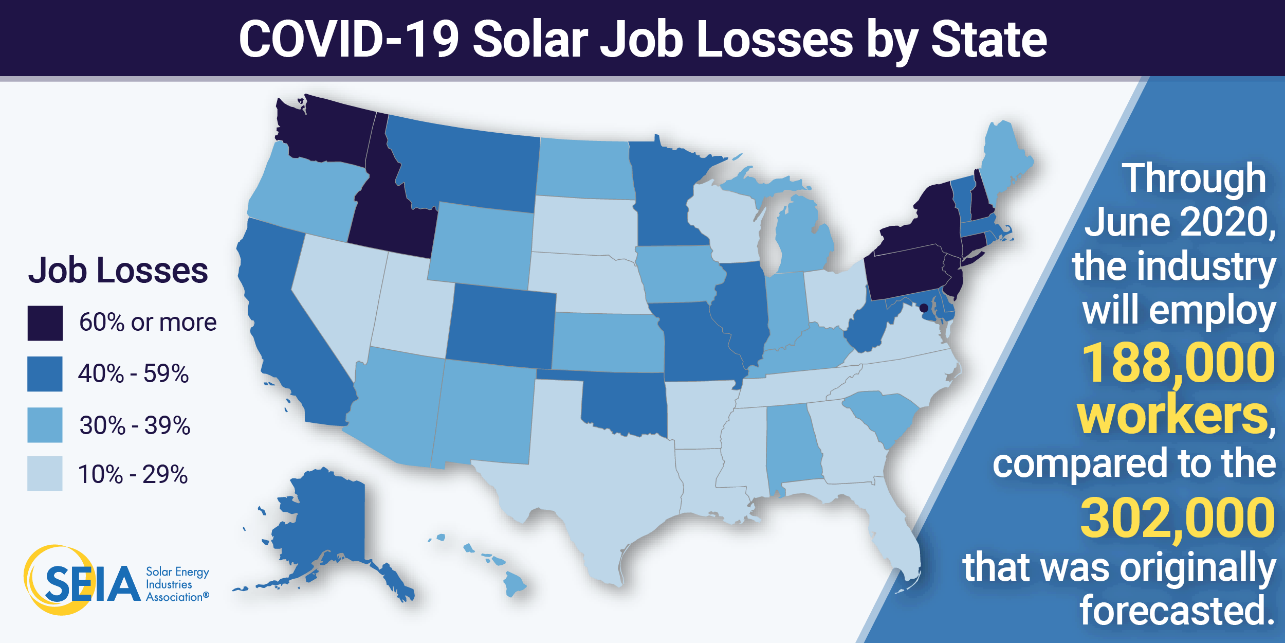COVID-19 Erases Five Years of Solar Job Growth
|
WASHINGTON, D.C. – New analysis shows that the U.S. solar industry will employ 114,000 fewer workers by June 2020, compared with previous forecasts that projected the industry would employ 302,000 Americans over the same time period. With an expected workforce of 188,000 people, this job loss will take the industry back to 2014 levels as a result of the COVID-19 crisis.
### |
|
About SEIA®: |
Comments (0)
This post does not have any comments. Be the first to leave a comment below.
Featured Product


